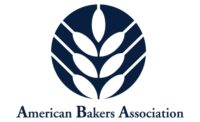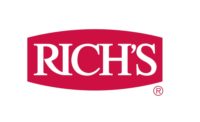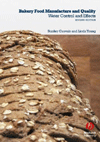Sitting Down with Jack and Rich, Part 2
In the second part of our Q&A with the heads of the IBIE Committee, Jack Lewis and Rich Hoskins frankly discuss the challenges facing the baking industry and the changes in promoting this year’s International Baking Industry Exposition.
Every three years, the U.S. baking industry hosts the main event, the International Baking Industry Exposition. This year’s show runs Oct. 7-10 in Orlando. IBIE is sponsored by the American Bakers Association and BEMA, the Baking Industry Suppliers Association.
Since the last show in 2004, a lot has changed with the baking industry, the business environment and the market for grain-based foods. Moreover, there have been a lot of changes with how the IBIE is organized, how it’s run and how the show will operate going forward.
For the second and final installment of our two-part series, we asked Jack Lewis, IBIE committee chairman, and Rich Hoskins, vice chairman, to share with us their thoughts on wide range of topics. By day, Lewis is president of Lewis Brothers Bakeries, based in Evansville, Ind. Meanwhile, Hoskins is president and CEO of Colborne Corp. and Foodbotics Corp., which are headquartered in Lake Forest, Ill. Here’s what they had to say:
Snack Food & Wholesale Bakery: What issues are bakers facing as we head toward the IBIE show?
Jack Lewis: In distribution, the retail, restaurant and foodservice channels continue to change, and these changes make obsolete many of our traditional distribution models. The point of sale for the baker in many groups is no longer the back door of a retail store, but the scanner at the check out in front of the store. Sunday is becoming the biggest sales day, while our traditional distribution model has Sunday as a holiday.
New health issues, public opinion and litigation are an ever-increasing opportunity and danger. One has to only look at trans fat to observe how quickly and dramatically a food ingredient can go from being perceived as good to being perceived as bad.
Sustainability also is now coming to the forefront, and the baking industry has its share of challenges such as wastewater discharges, emissions and resource usage. Sustainability makes business sense, but it requires changes in practices that date back decades, and it requires changing long accepted practices by you and your associates.
Additionally, information technology offers both new opportunities to manage your business, but carries with these opportunities the dangers of unproven applications and quick obsolescence.
In today’s environment, changes that took years now take hours, minutes or seconds. Knowledge is the difference between success and failure. These are some of the things that will be on everyone’s mind at the IBIE show. We will be looking for solutions to some of these challenges.
SF&WB: Any challenges from a human relations perspective?
Jack: In personnel, we’re dealing with continuing government mandates that complicate the ability to manage people — for example, the Family and Medical Leave Act. We have out-of-control medical costs that are increasing at a compound rate of about 10% per year. In this full-employment economy, we have high employee turnover and the continuing immigration issue. We have a changing work force and are faced with cost increases over and above wages.
SF&WB: How do you balance the desire for increased production flexibility against the need for stricter quality controls in an environment that calls for increased manufacturing efficiencies?
Jack: Not very well! Product offerings have exploded in the last few years. No longer are we able to run a line 16 to 24 hours per day of straight white bread. Each variety change costs in line efficiency due to the type of dough, mix variations, proof and bake differences, cleanup time, additional inventory, and shipping numerous SKUS [stock-keeping units].
Quality control is challenged by short runs and a wide variety of products. At 150 loaves per minute, you may only have five or six minutes run of an item. You can have two or three varieties in the oven at the same time. It’s difficult to manage the automation of variety and the quality when run in small batches on equipment designed for high speeds. This obviously affects manufacturing efficiencies because of the skips in line times and under utilization of machine time and labor.
We have attempted to consolidate manufacturing to specific bakeries. Thus, one bakery makes raisin bread, another makes diet breads, while another makes a certain wheat bread. The challenge of consolidating is controlling the transportation balance to avoid wasting manufacturing savings by using too much transportation.
There is no good answer to this question — only change and observation to minimize inefficiency and maintain acceptable quality.
Oh, for the good old days of continuous mix white bread and two pans.
SF&WB: Many baked goods are either components of other products (such as cookie crumbs as a base for pies) or have become part of entrees, such as tortillas, burritos, taquitos and other Mexican foods. How does IBIE target these food companies where baking is just part of their overall business?
Jack: Historically, we haven’t targeted these companies, but they’ve attended in large numbers. I think because they realize how relevant IBIE is to their business. They know that IBIE isn’t just about baking — it’s the biggest and most comprehensive show in the grain-based food industry. And, this year, we’re delivering that message in a big way. We even have education sessions dedicated to serving these types of companies.
SF&WB: Many U.S. food shows occur every two years. Has the IBIE Committee considered changing its schedule so that the show runs more frequently?
Rich Hoskins: There is a general trend in the USA to organize “industry specific” trade shows on a two-year cycle, and I personally believe this is a good cycle based on typical new product development cycles for capital equipment. However, most industry specific exhibitions are not as focused on the international market as IBIE is.
The three-year cycle was developed around the international exhibition schedule, which features IBIE, iba in Germany and Europain in France as the three biggest baking exhibitions in the world. Each of these three shows rotates from year to year so as not to create conflict within the baking industry. Although there are many factors that may cause us to reconsider, at present this appears to be working very well, and there are no plans to change.
SF&WB: Why was IBIE made into a limited liability corporation and an operating company owned by the ABA and BEMA?
Jack: IBIE as a limited liability corporation is a better operating platform than a simple committee. An LLC is useful in limiting the exposure to liability for both the ABA and BEMA, while still allowing us to distribute the income to the respective organizations.
The Operating Memorandum we have used in the past serves as the by-laws of the new LLC, allowing both American Bakers Association and BEMA to continue following the same governing rules.
SF&WB: What’s new about the IBIE Web site? Why did you make those changes?
Jack: Everything! This year, our Web site is organized, marketing-driven, user-friendly and robust. We’ve included targeted content for sub-segments of the grain based food industry and have translated key information into foreign languages. We realize that more and more people are making decisions about what events they attend online and wanted to ensure our message was as succinct and dynamic as possible.
SF&WB: You’ve made a lot of changes in your bylaws over the last year. How come a thirsty attendee can’t get a cold beer at IBIE when its 100ºF outside?
Rich: The Europeans and the Americans typically have a different view of this issue, and it is not likely to change in the near future. Here in America, that common noon cocktail pretty much disappeared in the 1980s, and our 8 a.m. to 5 p.m. business world frowns on deals under the influence. Hence, with some exceptions, USA trade has banned beer, liquor and, my favorite, wine, until the close of the exhibition.
Now, that being said, at 5 p.m., you will be free to visit any number of hospitality suites that are being hosted in the convention center immediately after closing. If you’re having any trouble finding one, please look me up in the Colborne/Foodbotics hospitality suite!
SF&WB: What is your favorite bakery product and why?
Rich: It varies depending on the time of day. I always start out with healthy intentions, eating a Thomas’ whole wheat English muffin for breakfast. By the end of the day, though, I give in to the temptations offered by the industry and enjoy something like a slice of blueberry pie with ice cream or Nestlé Toll House cookies. I love the breadth of product in the baking industry and the freedom of choice.
SF&WB: What’s your favorite Disney character?
Rich: Now that’s an easy question: Peter Pan!! I hope never to get old …
SF&WB: Finally, what are you going to do after the show?
Jack: I’m going back to my day job — baking bread! SF&WB
Editor’s Note: To register or get more information about the upcoming IBIE show, visit www.IBIE2007.com
Talking Heads
Meet the heads of the 2007 IBIE show.
R. Jack Lewis, Jr., IBIE Chairman
Born: Anna, Ill.
Education: B.S. Economics from Florida State University (Cum Laude)
Business: Joined Lewis Bakeries in Anna, Ill. in 1959
Wife: Peggy S. Lewis
Company Names:
Lewis Brothers Bakeries, Inc. (President/CEO)
Lewis Bakeries of Tennessee (President/CEO)
Hartford Bakery, Inc. (President/CEO)
Holsum of Ft. Wayne, Inc. (Chairman/CEO)
Bakery Locations:
Evansville, Ind.; Vincennes, Ind.; Ft. Wayne, Ind.; LaPorte, Ind.; Murfreesboro, Tenn.
Organizations Current:
Member of Board of Directors of American Bakers Association
Member of Board of Directors and President of Quality Bakers of America
Member of the Board of Directors of Old National Bank
Organizations and Companies Past:
Past member of the Board of Directors of The Long Co.
Past member of the Board of Directors of the Indiana State Chamber of Commerce
Past Chairman of the American Bakers Association
Past member of the Board of Directors of the North American Green Co.
Awards:
Recipient of the 1997 Entrepreneur of the Year Award for the State of Indiana
Richard I. Hoskins, III, IBIE Vice Chairman
Education:University of Dayton (BS Chemical Engineering — 1972)
University of Rochester (Graduate School of Management — 1979)
Experience:
Worked for Fortune 500 companies: Eastern Industries, AMF, Interpace Corp., and Houdaille Industries in various marketing/management positions for engineered products divisions from 1972-78 and Division President from 1979-85.
1985-94: President of a private national distribution business (Gelber Industries) and founded a specialty process engineering company (Liquid Systems Engineering, Inc) that was sold in 1994.
1994-present: President/CEO/Owner of Colborne Corp. and Foodbotics Corp., closely related Food Process Automation Cos. originally founded in 1879.
Born: Anna, Ill.
Education: B.S. Economics from Florida State University (Cum Laude)
Business: Joined Lewis Bakeries in Anna, Ill. in 1959
Wife: Peggy S. Lewis
Company Names:
Lewis Brothers Bakeries, Inc. (President/CEO)
Lewis Bakeries of Tennessee (President/CEO)
Hartford Bakery, Inc. (President/CEO)
Holsum of Ft. Wayne, Inc. (Chairman/CEO)
Bakery Locations:
Evansville, Ind.; Vincennes, Ind.; Ft. Wayne, Ind.; LaPorte, Ind.; Murfreesboro, Tenn.
Organizations Current:
Member of Board of Directors of American Bakers Association
Member of Board of Directors and President of Quality Bakers of America
Member of the Board of Directors of Old National Bank
Organizations and Companies Past:
Past member of the Board of Directors of The Long Co.
Past member of the Board of Directors of the Indiana State Chamber of Commerce
Past Chairman of the American Bakers Association
Past member of the Board of Directors of the North American Green Co.
Awards:
Recipient of the 1997 Entrepreneur of the Year Award for the State of Indiana
Richard I. Hoskins, III, IBIE Vice Chairman
Education:University of Dayton (BS Chemical Engineering — 1972)
University of Rochester (Graduate School of Management — 1979)
Experience:
Worked for Fortune 500 companies: Eastern Industries, AMF, Interpace Corp., and Houdaille Industries in various marketing/management positions for engineered products divisions from 1972-78 and Division President from 1979-85.
1985-94: President of a private national distribution business (Gelber Industries) and founded a specialty process engineering company (Liquid Systems Engineering, Inc) that was sold in 1994.
1994-present: President/CEO/Owner of Colborne Corp. and Foodbotics Corp., closely related Food Process Automation Cos. originally founded in 1879.





